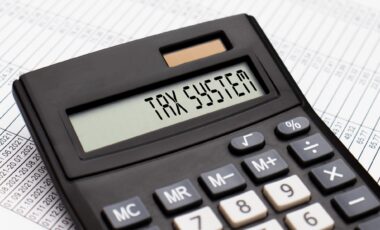Many Australian retirees could be paying more tax than necessary due to a lack of awareness about superannuation rules. New research suggests that around 700,000 Australians over 65 may still have their superannuation in an accumulation phase account, leading to avoidable tax payments.
The Difference Between Accumulation and Retirement Phases
Superannuation in Australia operates in two phases:
- Accumulation phase: The stage where superannuation savings grow before retirement. Investment earnings in this phase are taxed at 15%.
- Retirement (or pension) phase: Super funds can be converted into an income stream, with investment earnings becoming tax-free.
Once Australians reach retirement age, they have the option to move their super from the accumulation phase to the retirement phase. However, research by the Super Members Council found that many retirees are not making this transition, potentially paying hundreds or thousands of dollars more in tax than they need to.
How Much Extra Tax Are Retirees Paying?
The study found that retirees keeping their super in an accumulation account could be paying an additional $650 per year in taxes. Over the course of retirement, this could add up to $9,000 in unnecessary tax payments for someone with an average super balance of $200,000.
For many, this financial impact is not a strategic decision but rather a result of lack of awareness or inertia. Some retirees may not know how to switch their super, while others may not be actively managing their accounts.
Calls for Financial Advice Reforms
Misha Schubert, CEO of the Super Members Council, emphasized the importance of accessible financial advice to help retirees make informed decisions. Many Australians do not receive basic superannuation advice, leading to suboptimal financial choices.
“Not knowing enough about super can lead to poor decisions, like leaving accounts inactive or withdrawing funds without proper planning,” Schubert said.
The Australian government is now working on financial advice reforms to make retirement planning more accessible and affordable.
What Changes Are Coming to Superannuation Advice?
In December 2023, the federal government announced reforms aimed at improving access to financial advice through super funds. These changes include:
- A new category of financial adviser: Designed to provide safe and simple financial guidance for everyday Australians.
- More proactive super fund communication: Funds will be allowed to send reminders and nudges at key life stages, such as retirement, to encourage better decision-making.
- Mandatory service standards: Super funds will face new requirements for processing payments, particularly in cases of death and disability claims.
Research from the Association of Superannuation Funds of Australia (ASFA) found that one in two Australians have never accessed professional advice about retirement. These reforms aim to bridge the knowledge gap and ensure retirees make the most of their super.
What Should Retirees Do Now?
Retirees who still have their super in an accumulation account may benefit from reviewing their options. Moving funds to a retirement phase account could result in significant tax savings. Those uncertain about the process may consider consulting a financial adviser or checking their super fund’s guidance services.










Well done ! Yes, Australians should be better off . Royalties go to the States but that does not preclude a Federal levy . I propose a ‘Citizens Dividend Export Levy”. This would be $8 per tonne on all exports , This would include any current export fees by the Federal Govt.
Of that $8, 50c could go to a Green Energy Fund if the exports are fossil fuels .
I can send you a copy of my ‘Welfare and Tax Reform’ if you wish . Quite timely . I’ve been thinking of sending a copy to every politician .